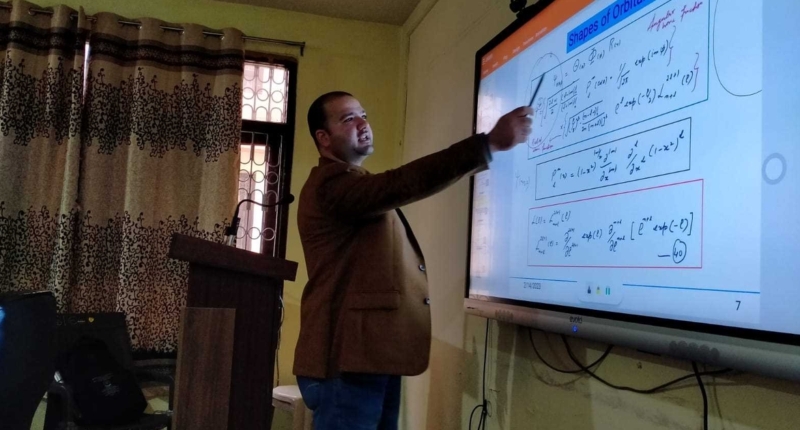The State Council of Educational Research and Training (SCERT) recently organized a training program for lecturers on modern teaching methods and content enrichment, aimed at improving the quality of science education at the secondary level. The workshops were interactive and engaging, with a focus on providing practical insights into the latest teaching methods and techniques. Lecturers were encouraged to share their experiences and best practices in teaching, which helped to create a collaborative learning environment. The training program covered various topics such as lesson planning, classroom management, assessment and evaluation, and the use of technology in teaching. The experts from prestigious institutions, along with professors from the higher education department and resource persons from SCERT, shed light on modern concepts of teaching in the light of the newly launched NEP-2020 education policy. Overall, the training program is a laudable initiative that deserves recognition and support. It is a step towards promoting a culture of scientific inquiry and innovation in the valley, and it equips lecturers to provide quality education to their students and inspire them to develop a passion for science and learning.
SCERT’s Science Workshop Series on Pedagogy and Content Enrichment
The State Council of Educational Research and Training (SCERT) recently concluded a series of workshops designed to improve the quality of science education at the secondary level. The workshops were held between December 2022 and March 2023, covering Zoology, Botany, Physics, Chemistry, and Environmental Science.
The programs aimed to enhance pedagogical approaches and content enrichment by providing practical insights into the latest teaching methods and techniques. The workshops, discussions, and hands-on activities were interactive and engaging, giving participants a deeper understanding of science teaching and learning.
The orientation sessions encouraged lecturers to share their experiences, challenges, and best practices in teaching science subjects. This created a collaborative learning environment, where the participants could learn from each other and build a network of like-minded professionals.
The programs covered various topics such as lesson planning, classroom management, assessment and evaluation, and the use of technology in teaching. The lecturers were introduced to the latest developments in science education, such as inquiry-based learning, flipped classrooms, and blended learning.
The lecturers who participated in the program have benefited greatly, acquiring new skills and knowledge that they can apply in their teaching practice to enhance student learning and engagement. The training program has helped to raise the bar for science teaching in higher secondary schools.
The workshop was conducted by experts from prestigious institutions such as Government Medical College (GMC), Srinagar, Institute of Mental Health and Neuro Sciences (IMHNS), Sher-i-Kashmir University of Agricultural Science and Technology (SKUAST), University of Kashmir (KU), Islamic University of Science and Technology (IUST), National Institute of Technology (NIT), along with professors from the higher education department and resource persons from SCERT.
The experts shed light on modern concepts of teaching in the light of the newly launched NEP-2020 education policy. Overall, the SCERT’s orientation training programs have equipped lecturers to provide quality education to their students and inspire them to develop a passion for science and learning.
SCERT’s Training Program on Modern Teaching Methods for Lecturers
The State Council of Educational Research and Training (SCERT) organized a training program for lecturers to enhance their teaching skills and learn about modern teaching methods. The program aimed to improve the quality of science education at the secondary level and promote critical thinking, problem-solving, and innovation.
The NEP-2020 emphasizes the importance of science education, and the training program provided an opportunity for lecturers to learn about the modern teaching methods and develop their teaching skills accordingly.
The SCERT team, which included prominent faculty members, played a crucial role in organizing and executing the training program. The workshops were designed to be interactive and engaging, with a focus on providing practical insights into the latest teaching methods and techniques.
Joint Director, SCERT, Mohammad Sharif Dehdar, highlighted the significance of the training program in improving the quality of science education at the secondary level. He emphasized that the program would help the lecturers to gain a better understanding of modern teaching methods, which, in turn, would lead to better learning outcomes for students.
Overall, the training program is a laudable initiative that deserves recognition and support. It is a step towards promoting a culture of scientific inquiry and innovation in the valley.
Don’t miss interesting posts on Famousbio
